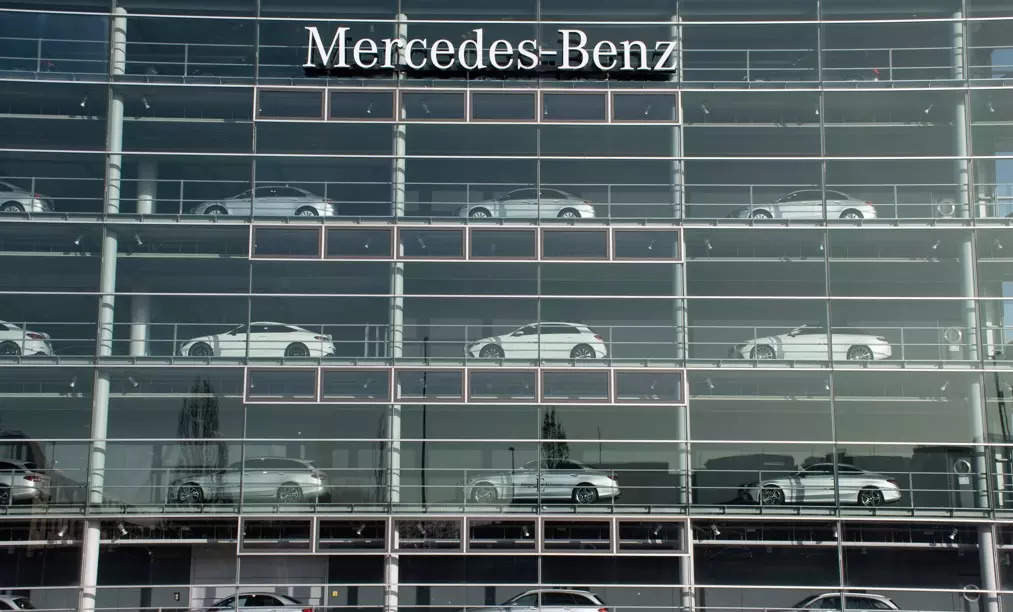
New Delhi: For a long time, Mercedes-Benz was synonymous with luxury cars in India. The company entered India in 1994. Then in 2007, the other two German rivals, BMW and Audi, made their debuts to upset its apple cart and the solo game.
Audi and BMW grabbed the pole positions, but for less than five years in a row by each of them. BMW climbed to the number one position in just two years of its operations, in 2009, but was dethroned by Audi in 2012-13.
In 2015, Mercedes-Benz returned to the top slot. Since then, it has maintained the crown as the only luxury carmaker to have it for seven straight years.
“The long history in India and an initial period of being the only luxury vehicle available in the country has created an aura around the brand. This on the one hand, attracts a lot of first-time buyers and on the other creates a very strong loyalty among the people to the brand,” explains Ashim Sharma, Partner and Group Head B (Automotive, Engg. & Logistics), Nomura Research Institute (NRI).

According to Industry sources tracking the data, Mercedes Benz sold 12,071 cars in FY22, followed by BMW 8771 units and Audi less than 3500 units.
About the reason for the consistent performance in the Indian market, Santosh Iyer, VP (Sales and Marketing) Mercedes-Benz India, said the fully loaded product offerings across models and doing away with the entry-level model along with many other attractive measures helped the company.
“Over the years we have created a strong residual value for our brand. A major change after Covid-19 is that people want to spend on themselves,” Iyer added. He also informed that women buyers have doubled to almost 18% from about 9% earlier.
Mercedes-Benz is the only automaker in India to shift completely to digital booking and a direct-to-customer kind of setup. “This (D2C) enabled us to reduce the average time to close the deal from about 30 days to 5-6 days. This resulted in dealerships giving full attention to customer experience and service,” Iyer said.
Ashim Sharma of NRI points out that the wide portfolio and constant innovations not only in the products but also in financing schemes, and futuristic sales model akin to the agency sales model are some of the factors that have contributed to the growth of Mercedes-Benz in India.
“Women buyers doubled to almost 18% from about 9% earlier,”Santosh Iyer, VP (Sales and Marketing) Mercedes-Benz India
Another Industry analyst, Ravi Bhatia, president for India at JATO, argues that improving the overall affordability of the product portfolio Mercedes Benz has helped more consumers move into luxury mobility.
The advantage of D2C is obvious. Despite all the supply challenges, sales volume in the quarter after the implementation of the new strategy increased to 4200 units from about 3000 a quarter. Meanwhile the company informed that at least 4000 bookings are pending.
The top seven metros, Delhi, Mumbai, Bengaluru, Chennai, and Hyderabad, are the key markets driving the growth for Mercedes-Benz India. They contributed almost 80% of the total sales, Iyer said.
Last year India’s luxury car market stood at about 27,000 units. Mercedes-Benz expects it to grow to about 35,000 units if there are no major challenges. “We are now dealing with not only chip shortage but also ship shortage,” he pointed out.
Arch rival Audi, while preparing to bounce back, blames it on the decision to exit the diesel car in the Indian market with a double-digit growth in CY22. “In April 2020, when the auto industry moved from BSIV to BSVI, Audi India made a bold decision to move from Petrol + Diesel to Petrol + Electric strategy in India. At Audi India, we are focused on growing the business in a sustainable and profitable manner,” Balbir Singh Dhillon – Head of Audi India told ETAuto.
He added that despite the pandemic and the semiconductor shortage, Audi India sales grew 101% in CY21, on the back of 9 new product launches, though on a low base.














